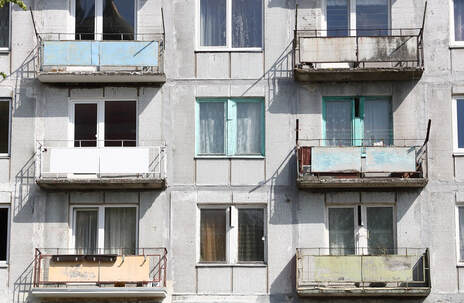|
While we all know that property prices have risen steadily in Australia for many decades, there is a big difference between the top-performing properties and those that have struggled. While the suburb and area are important factors in property selection, many investors fail to identify some of the red flags that might weigh on a property’s potential for growth.
These are some of the most common red flags to look out for: Hidden Costs While most investors will pay close attention to the asking price of a potential property, many miss some of the hidden costs. While building and pest issues are usually addressed, there are other hidden expenses that it is important to look for. If you’re looking at buying an apartment or unit, the costs that come with a strata complex can be very high. In most cases, you will be required to pay strata fees, which are typically higher in newer buildings that offer facilities such as gyms and pools. Similarly, strata companies generally put money towards things such as sinking funds or even have special levies in place to pay for large capital works. Older buildings can experience a range of expenses relating to maintenance, upgrades, or restoration. Be sure to get a copy of the minutes from the past few strata meetings to see what the board has in mind for expenses going forward before buying a strata-titled property. Whereas if you own a house or even a block of land, councils can require ratepayers to contribute additional levies for projects in the area. This has the potential to hurt your investment as you not only have to pay the costs, but you’ll also have trouble selling the property until those expenses have been met. Public Housing While we all know that suburbs grow at different rates, it’s important to take into consideration things like public housing in the area. If there is a lot of public housing on a certain street, it’s likely that the entire block will be negatively impacted in terms of possible growth. A Long Listing If a property has been on the market for a long time, there is likely a reason for this. It could just be that the vendor has unrealistic expectations. However, in certain circumstances, there might be a more serious issue with the property. This doesn’t necessarily rule the property out; however, if the vendor is unwilling to negotiate, you are well within your rights to walk away. On the other hand, it is important to remember, that just because a property is reasonably priced, doesn’t always mean it’s good value. Incorrect Listings While sales agents might be good at selling properties, they are not always property experts. This is often the case when it comes to things like the development potential of property. These days, if you can subdivide a property, it will likely be marketed as having that potential. A property with development potential will often be priced higher than a comparable property that can’t be subdivided. The issue with these properties is that not all sales agents are experts at property development. Just because an area has been rezoned to encourage development doesn’t necessarily mean that every property will be a viable one. It is always best to do your own due diligence on a property before making an offer. Or, at the very least, include in your offer some key clauses that protect you. |
EDITOrCategories
All
Archives
December 2023
|
|
Read about us on KochiesBusinessBuilders and Linkedin
Partner with Adobi Mortgage Solutions Contact Bruce Johnstone (03) 9996 8553 or email [email protected] |
©2021 ADOBI® MORTGAGE SOLUTIONS ABN 94465268443
Suite 405, 585 Little Collins Street, Melbourne, VIC 3000 Telephone: (03) 9996 8551 Credit Representative Number 536529 authorised under Australian Credit Licence 384324 Your complete financial situation will need to be assessed before acceptance of any proposal or product Please review our Lenders, Terms of Use and Privacy Policy Member 87449: AFCA - Australian Financial Complaints Authority Member M-351557: FBAA - Finance Brokers Association of Australia |




 RSS Feed
RSS Feed


